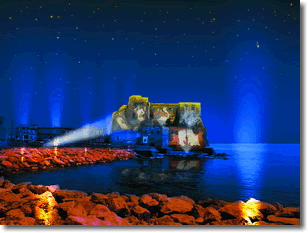Castel Nuovo, better known as the Maschio Angioino, is one of the most symbolic sights in Naples and one of the most famous castles in Italy. Its imposing façade dominates Piazza Municipio, and creates an indisputably beautiful picture-postcard view. Charles of Anjou, the head of the French dynasty in Naples, commissioned the building because, having failed to find a suitable place to live in Castel Capuano, he decided to build himself a fortified palace by the sea. He chose the area known as Campus oppidi, where there was a small Franciscan church...
Castel dell'Ovo stands on the small island of Megaride, where the Siren Parthenope is said to have been washed up, and is one of the oldest and most characteristic castles in Naples. Its name is linked to the legend of the magic egg which originated in the Middle Ages. This egg is capable of protecting the city and its people from disaster or danger. Virgil is supposed to have hidden it in some secret place in the castle, preserved in a glass jar placed inside a metal cage...
Publio Virgilio Marone (70-19 B.C.), the great Latin poet, acquired legendary status during the Middle Ages when he became associated with mysticism and magic powers. Virgil, a magician and benefactor of Naples, is said to have hidden an egg somewhere in the Castel dell'Ovo. This egg was put in a glass jar and then inside an iron box. The fate of the city was linked to the egg: if it ever got broken, disaster would strike...

 read all
read all